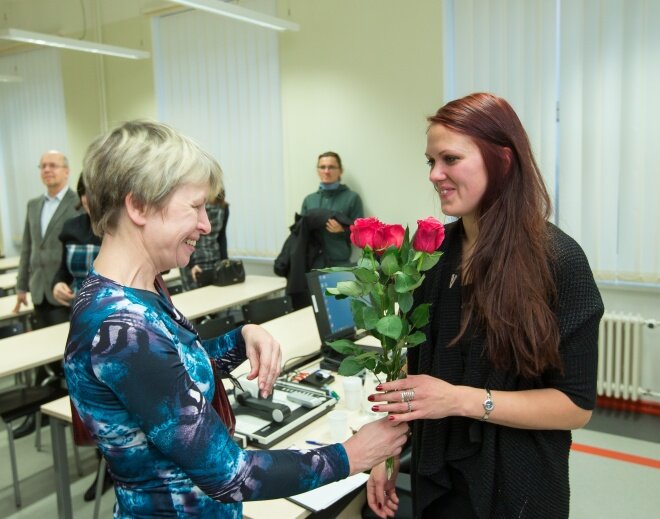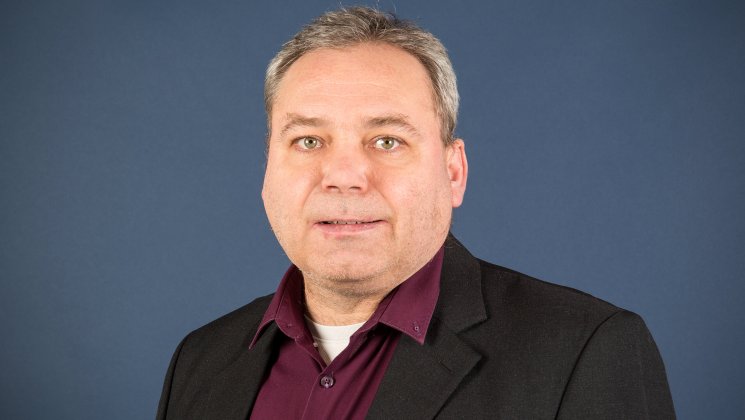UT researchers of humanities brought two Medals of Baltic Assembly to Estonia
The Medal of the Baltic Assembly was awarded to the University of Tartu Faculty of Philosophy’s Professor Valter Lang and Teacher of Latvian Ilze Zagorska for their outstanding contribution to strengthening cooperation of the Baltic States.
Member of the Estonian Academy of Sciences and one of the leading archaeologists in the Baltic States Professor Valter Lang said that the medal is a great recognition of years-long work which in retrospective does not even seem as actual work.
“It has rather been normal and constant close interaction with our Baltic neighbours, with whom we have had several mutual undertakings,” thinks Lang. One of the most outstanding joint activities to his mind is the Baltic Archaeological Seminar, which has since 2003 brought together mainly younger generation archaeologists who are interested in developing theoretical thinking in their daily work.
Lang believes that professional cooperation between the Baltic States is a natural process. “At some point we were quite seriously contemplating the idea of a joint master’s programme in archaeology with UT, Vilnius University and the University of Latvia, but for numerous reasons, mainly bureaucratic, it did not work out. Today it seems that it is not necessary to focus particularly on how to improve cooperation—ideas and options for this come by themselves. I suppose it makes sense in a situation where mutual cooperation is an inner need, not an obligation enforced from above,” said Lang.

The Medal of the Baltic Assembly was also awarded to UT Teacher of Latvian Ilze Zagorska, who initiated and helped the publication of the first Latvian language textbook for Estonian students after 77 years.
Zagorska says the award means a lot to her as it is the first medal she has received for doing something she loves: “It is wonderful when Latvians, Lithuanians and Estonians are interested in one another’s language and culture. If we speak at least two Baltic languages, we can actually communicate really well. Even though our languages are different, we have a lot in common.”
The young award winner thinks that Estonia needs more Latvian and Lithuanian translators. “Compared to the University of Latvia, which has specialisations of Lithuanian and Estonian languages, and Vilnius University, which offers specialisations of Latvian and Estonian languages, the University of Tartu offers beginner level courses of Latvian and Lithuanian as optional courses and a Latvian and Lithuanian culture course—but this is not enough,” says Zagorska, who hopes that one day the University of Tartu provides the possibility to train young translators of Latvian and Lithuanian language.
Zagorska described that the University of Tartu has great cooperation with colleagues from the University of Latvia and Vilnius University. For example, they have organised conferences for Baltic students and other events, but she would like to see more cooperation initiative within the university: “Our university could have even closer cooperation between lecturers and students in the form of various events, language camps and curricula.”
Zagorska on the right hand.

During the ceremony in Vilnius, the Baltic Assembly Prize for Science was also presented and it was awarded to UT Senior Research Fellow Eva-Clarita Pettai and UT Professor of Comparative Politics Vello Pettai for their monograph “Transitional and Retrospective Justice in the Baltic States” which is the first overview of this kind about transitional justice in the Baltic States. Read more about the laureates of the science prize on the UT website.
Additional information: Valter Lang, UT Professor of Archaeology, tel. 737 5652, e-mail: valter.lang [ät] ut.ee (;)
Ilze Zagorska, UT Teacher of Latvian, tel. 737 6359, e-mail: ilze.zagorska [ät] ut.ee (.)
Mobile: +372 5815 5392





